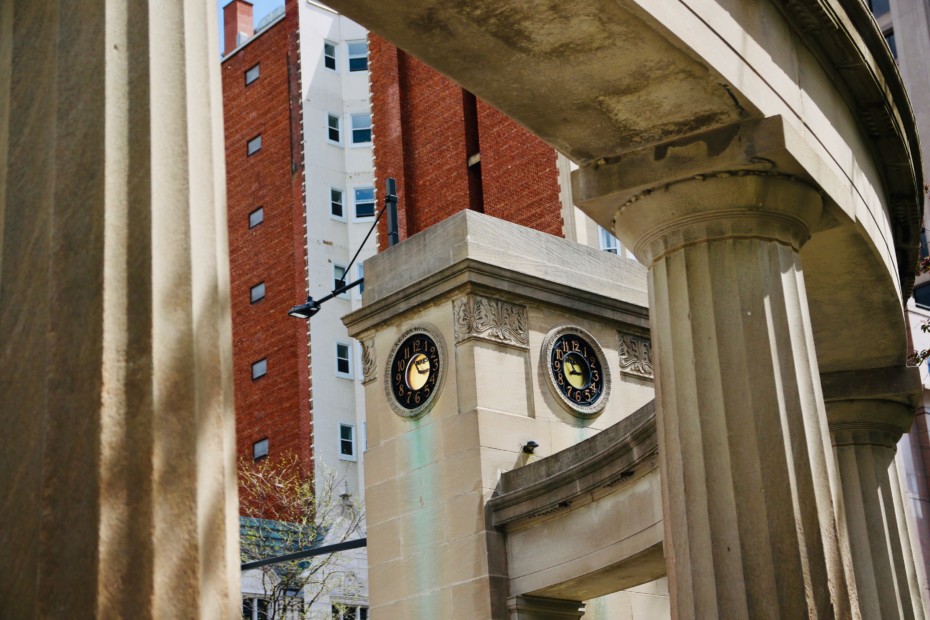
Yesterday, Premier François Legault announced that school closures will be extended to May 1. Within hours, Fabrice Labeau, Deputy Provost (Student Life and Learning), had issued a statement to the McGill community clarifying what this development would mean to the University.
“McGill will now extend the reduced level of on-campus activities, which had been originally set for two weeks ending March 30, as we continue to follow government directives. We understand that you may have questions about what this extension means. We are working with the government and other Quebec universities to get further clarity and will communicate as soon as we can, likely within the next few days,” said Labeau.
“As communicated earlier, all courses that can be taught using remote instruction will be available starting on March 30,” he continued. “There will be no in-person classes and no in-person sit-down examinations for this term; the term will not be extended; students will not be required to be physically on campus for the rest of the Winter 2020 term.”
Labeau also reminded people that the summer semester will proceed through remote instruction, and that McGill is still actively recruiting students from across the world for the Fall semester.
Ban on indoor and outdoor gatherings, with exceptions
Premier Legault also announced other new measures that will impact University operations.
The Quebec government tightened the rules concerning social distancing. The new decree bans indoor or outdoor gatherings (two people or more) except in specific circumstances.
“Activities currently approved to be carried out on campus are exempted from this ban at this current time,” said Legault. “Employees and students who work on campus with approval are expected to maintain a distance of two metres from other people, as much as they possibly can. We ask supervisors to look at reorganizing workplaces as needed to respect this two-metre social distancing, and to seek guidance from their own supervisors or Chairs where this is not possible.
Residence dining is now take-out only
Premier Legault also announced that restaurants must close except for take-out service. This means all food service locations on campus are closed. Residential dining halls will remain open with limited hours of service. Take-out meal service is offered but the seating areas are closed.
Trudeau updates travel information
On Saturday, Prime Minister Justin Trudeau updated Canadians on several travel-related issues.
The Canadian government is working with other countries to arrange commercial flights to bring stranded Canadian citizens back home.
“If you are a Canadian citizen who is currently stranded abroad, please register with Global Affairs Canada, if you have not already done so,” said Labeau in a communiqué on Saturday. “The Government will then be able to reach out to you and inform you of possible flights.”
Labeau reminded McGillians to take not of the following:
- The flights are commercial flights, so passengers will be expected to pay for their tickets
- Canadians arriving from abroad will be in isolation for 14 days
- No one exhibiting symptoms of COVID-19 will be allowed on one of these flights.
If you are not able to access one of these emergency flights, the Government is offering assistance to citizens through Canadian consulates, as well as a loan of $5,000.
If you need to contact the Government, you can do so in the following ways:
Email:
Telephone:
- Call the nearest embassy or consulate
- +1 613 996 8885 (call collect where available)
- Toll-free numbers in some countries
Exemptions from travel restrictions
Trudeau also provided an update on exemptions to travel restrictions put in place to stem the spread of COVID-19.
International students who held a valid study permit or had been approved for a study permit when the travel restrictions took effect on March 18 are now permitted to travel to Canada.
As well, the newly introduced exemption is also applicable to individuals on temporary work permits who may have been stranded abroad.
“Please note that study permit applicants who were approved after the travel restriction took effect on March 18, are not exempt from the air travel restrictions and will not be considered ‘essential’ travel at a land border,” said Labeau.
The government says it expects to announce the implementation of these exemptions early this week (the week of March 23). People can read the full release on the Government of Canada website.
Vigilance required
Labeau signed off yesterday’s communiqué with a reminder to people to remain vigilant. “I know that some people may be getting weary of hearing certain messages repeated frequently. The danger is that we become complacent about the very measures – especially hand washing and social distancing – that are crucial to ensuring our safety,” said Labeau.
“We should reflect upon the responsibility each one of us has to protect ourselves and the people around us. I know how challenging this new reality is – at every level of our daily lives. But we must remain vigilant and remember that every action we take today may help protect a life tomorrow.”
